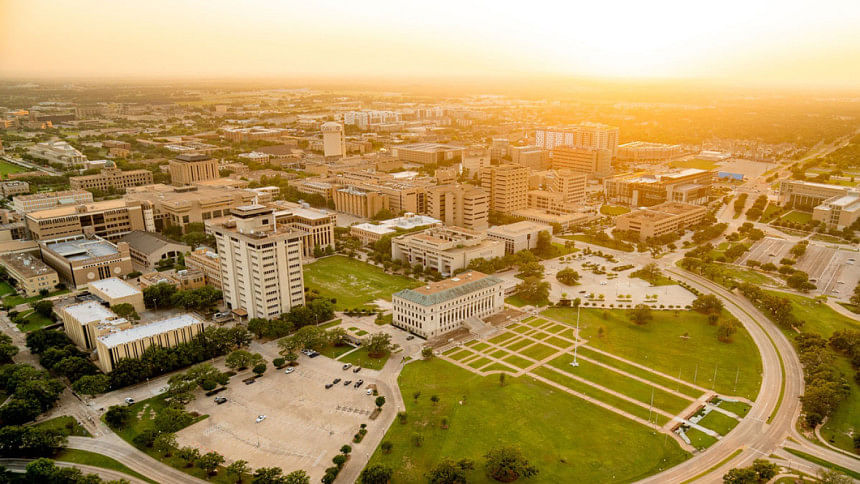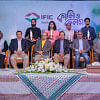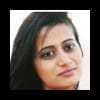Inside the journey of a Bangladeshi academic chasing a PhD at Texas A&M

Md Hasan Al Banna is a two-time recipient of the Gold Medal and Chancellor's Award from Bangladesh University of Professionals (BUP), and a nominee for the Prime Minister's Gold Medal. He is a member of the first graduating batch from the Department of Information and Communication Technology (ICT) at BUP.
After serving as a faculty member for four years at BUP – currently holding the position of Assistant Professor – Banna is now pursuing his PhD in Computer Science and Engineering at Texas A&M University, a top public research university in the US.
Campus caught up with Banna to delve deeper into his PhD journey, the decisions that shaped it, and the lessons he's gathered along the way.
Campus (C): Could you walk us through your academic journey from being a student and lecturer in Bangladesh to becoming a PhD scholar and a research assistant (RA) at Texas A&M?
Banna (B): I studied at BUP as a part of its ICT department's very first batch. That came with a sense of responsibility; we were not only shaping our own futures but also building the department's brand in the job market. From the outset, I was deeply involved in extracurricular activities. I helped establish the BUP InfoTech Club, a platform for students to share tech-driven ideas. The experience helped me build networks beyond BUP, and it even led to early collaborative research with professors from other institutions.

During the final year of my undergraduate life, I focused on research and succeeded in publishing my first paper. That was the turning point; it clarified my career trajectory. I realised that I found joy in academia, which led me to pursue a master's degree, and, eventually, a PhD.
I also engaged in several research projects during my master's, including ones funded by the ICT Division here in Bangladesh. Although the Covid-19 pandemic disrupted normal routines, it also gave me uninterrupted time for writing and publishing. I co-authored several papers in reputed journals during this period. After completing my master's, I joined BUP as a lecturer, a position I held for nearly four years. Teaching, for me, was a fulfilling chapter where I was able to mentor students and help some of them chart their own paths in academia.
C: What motivated you to pursue a PhD, and why did you choose Texas A&M in particular?
B: My motivation stemmed from a desire to delve deeper into research and contribute meaningfully to my field. After gaining teaching and research experience, I felt ready to take the next step. Applying for PhD programmes while working full-time was certainly challenging, but it also helped me focus.
When reaching out to professors, I was intentional; I discussed specific research alignments and even offered constructive criticism of their published work. Texas A&M stood out not only for its reputation but also because the professor I contacted had a project that aligned perfectly with my interests. Moreover, having a close friend already studying in Texas added a personal layer of comfort.
I was fortunate to be offered a graduate research assistantship for a National Science Foundation (NSF) funded project. That opportunity made Texas A&M an ideal choice.
C: What does a typical day look like as an RA? How do you manage your coursework, research, and overall well-being?
B: Though the formal contract mentions 20 hours per week, most RAs will tell you that it usually exceeds that. I easily spend 40 or more hours per week on research, but it's manageable if you're disciplined.
I recommend using weekdays for focused work and keeping weekends for rest and recovery. Physical health is also crucial; there's no one to care for you if you fall ill, so I make it a priority to stay fit.
Coursework, while manageable, requires consistent attention. Completing assignments on time and maintaining good grades are essential, especially since scholarships and assistantships often depend on academic performance.
For Computer Science students, especially, I would advise practising regularly on online judges and platforms like LeetCode or Codeforces since they significantly help with future job placements.
C: What strategies helped you prepare a strong PhD application, particularly your statement of purpose (SOP), recommendation letters, and research portfolio?
B: The SOP is perhaps the most important part of your application as it tells your story. Don't copy from others. A compelling SOP is cohesive, authentic, and reflects your academic evolution.
Of course, your profile must support your narrative. Publishing in top or Q1 journals, maintaining a quality GitHub repository, and engaging in impactful extracurriculars all matter. I was fortunate to have a few journal publications, ongoing research projects, and some involvement in tech-focused clubs. These lent credibility to my SOP.
Recommendation letters also play a vital role. It's important to give your referees enough time and context so they can highlight your strengths genuinely and in detail.
C: How different is the research environment at Texas A&M compared to what you experienced in Bangladesh?
B: The most notable difference is in the availability of resources. At Texas A&M, we have easy access to powerful GPUs and cutting-edge lab equipment. Students are given dedicated desk space within collaborative labs, which fosters continuous knowledge exchange.
Another key distinction is the research culture; here, it is open, debate-driven, and idea-centric. You're encouraged to challenge assumptions, even your advisor's, as long as you have the evidence. That kind of academic freedom pushes innovation.
C: What are the most rewarding and most challenging aspects of your current research work?
B: The greatest reward is seeing your idea work in real-time. When experiments succeed or a model gives the expected results, it's incredibly satisfying. But research also involves a fair share of struggle. You'll often get stuck, and it can feel frustrating.
My strategy is to take breaks when needed and return with a fresh perspective. The key is to remain patient and resilient. If you've made it this far, you have what it takes to push through.
C: What advice would you offer to Bangladeshi students dreaming of higher education and research opportunities abroad?
B: Start early and be deliberate. Identify your passion and begin aligning your academic journey with it. Work on your SOP with care, diversify your university options, and, most importantly, be honest with yourself.
Also, take part in meaningful extracurricular activities, build a strong research portfolio, and maintain good relationships with your mentors. These connections will be vital for recommendation letters. Keep learning, stay consistent, and don't be afraid to take risks.
And remember that it's okay if every attempt doesn't work out. Each experience teaches you something. Stay true to your goals, and success will follow.
Raiyan Bin Sarwar is a Campus Ambassador for The Daily Star from Bangladesh University of Professionals (BUP).

 For all latest news, follow The Daily Star's Google News channel.
For all latest news, follow The Daily Star's Google News channel. 








Comments